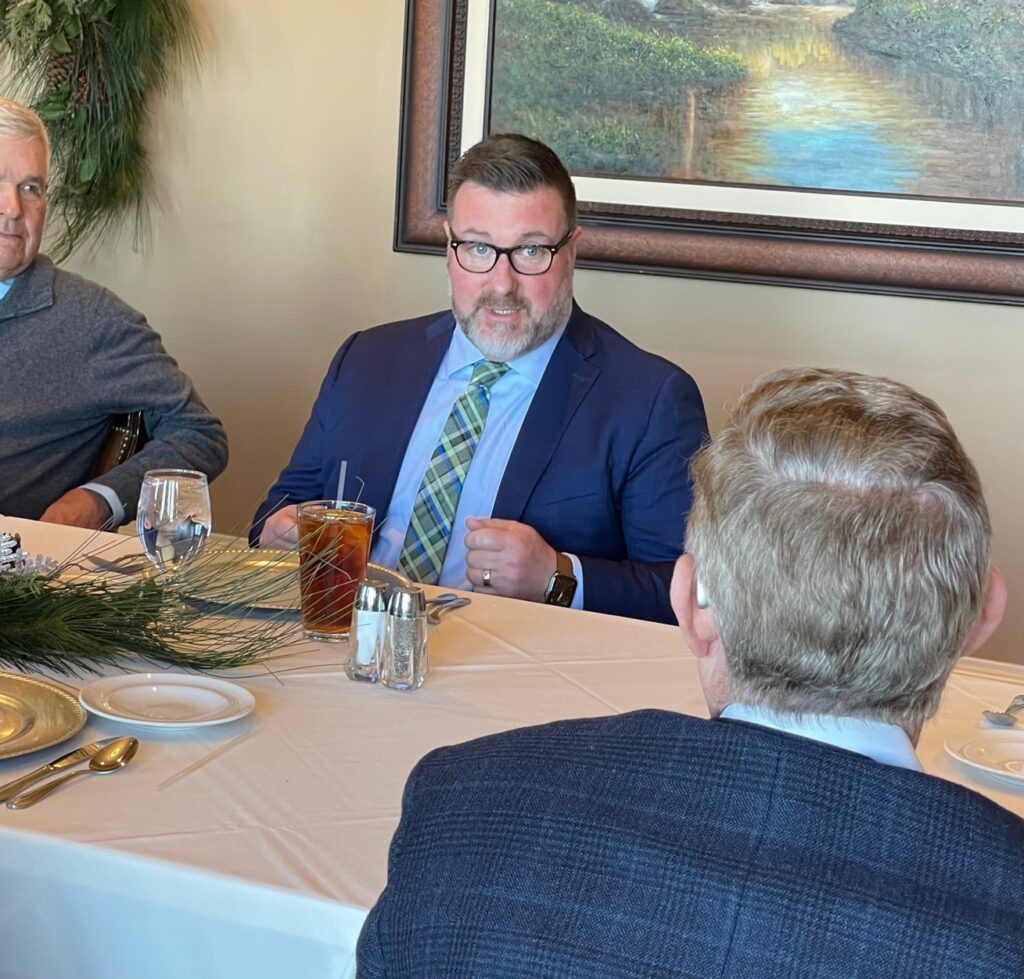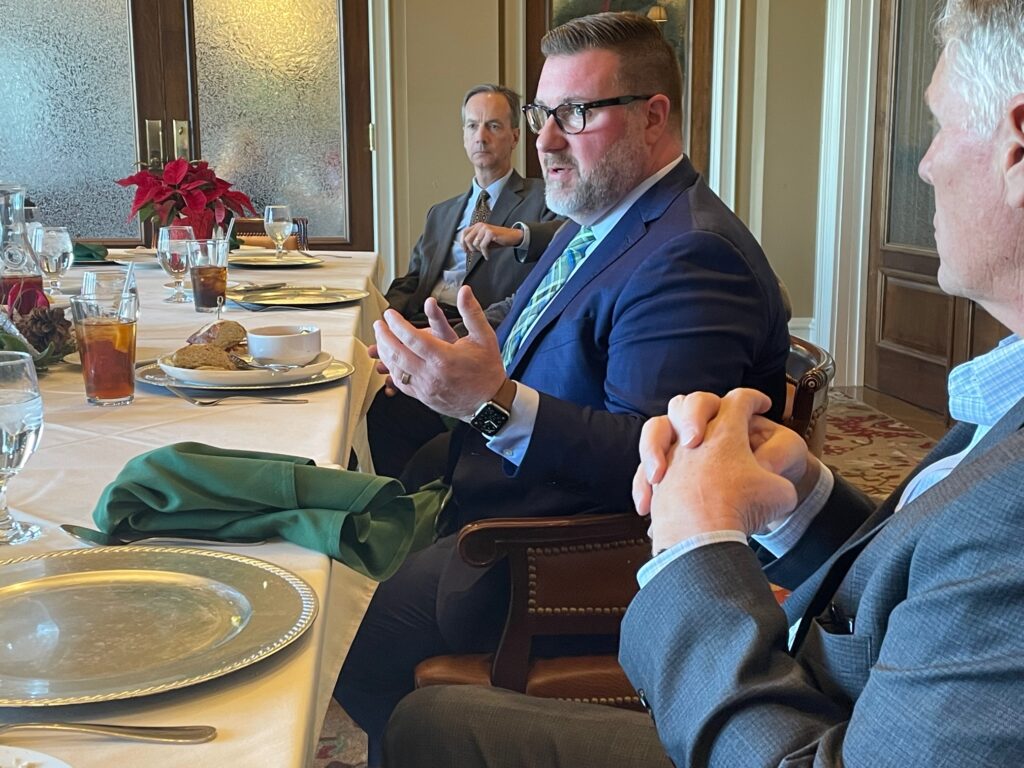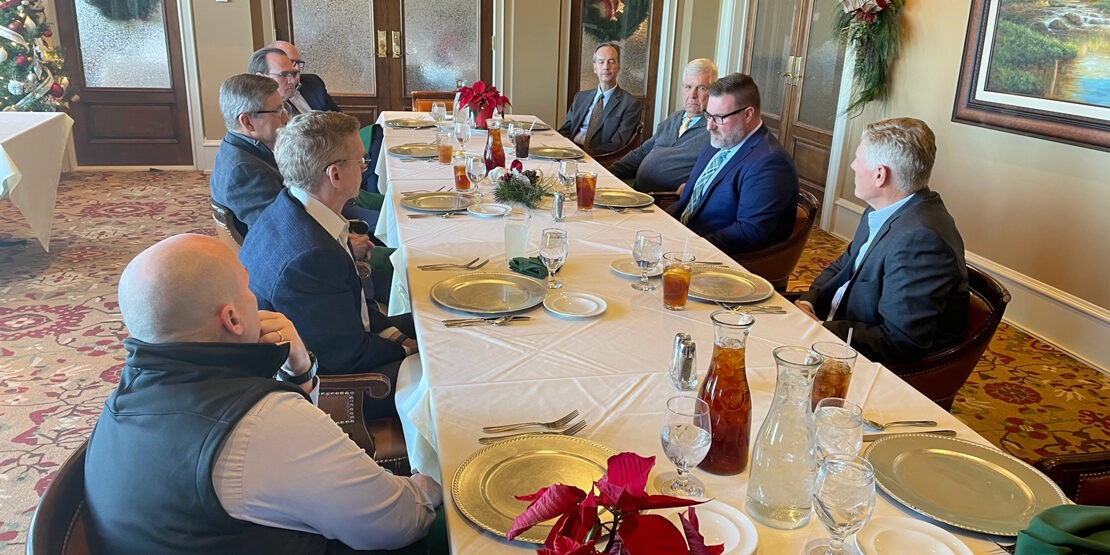Discussions with area business leaders to include what today’s employers need from graduates, promote the value of higher education
William Woods University (WWU) President Dr. Jeremy Moreland kicked off a new initiative today in Columbia, the President’s Business Roundtable, beginning an important conversation with area business leaders about what they need from today’s college graduates while promoting the overall value of a college degree.

Moreland today met with eight prominent business leaders who are instrumental to the Columbia economy, the first in a series of discussions designed to further align the needs of businesses in the 21st century economy with the skills and proficiencies of the graduates being produced each year by WWU and higher education in general. The president used the opportunity to listen and initiate a dialogue about how today’s universities can better serve modern workforce needs – and to further emphasize the value of a college education.
“I firmly believe that a college education is an individual’s greatest opportunity for a successful life,” Moreland said. “By any measure – income, prosperity, health – a college education has a profound effect on an individual, which in turn can provide a tremendous boost to our communities, economy and society as a whole. But at the same time, it is crucial that we in higher education remain closely connected to today’s business leaders at all times to ensure that we are producing the graduates that have the skills that they most demand.”

In recent years, there has been a growing body of concern that has begun questioning the value of a college degree, pointing to employer perspectives that colleges were not adequately preparing graduates for the world of work, to increases in student debt and declining job placement rates. A survey in the Chronicle of Higher Education earlier this year found a surprising number of employers saying that they had starting considering more applicants without college degrees, seeing the requirement as an artificial and unnecessary barrier to finding talent. “It is alarming to see that, at least some employers are chipping away at an argument that we in higher education have relied on for decades – that a higher education degree is a critical step to a professional career and higher salary and lifetime earnings,” Moreland said. “Maintaining an ongoing dialogue with our local business community about their workforce needs, while ensuring we are meeting them with our graduates, is how we remind everyone that a college degree is as valuable as ever – to individuals that earn them, and employers that hire those with them.”

